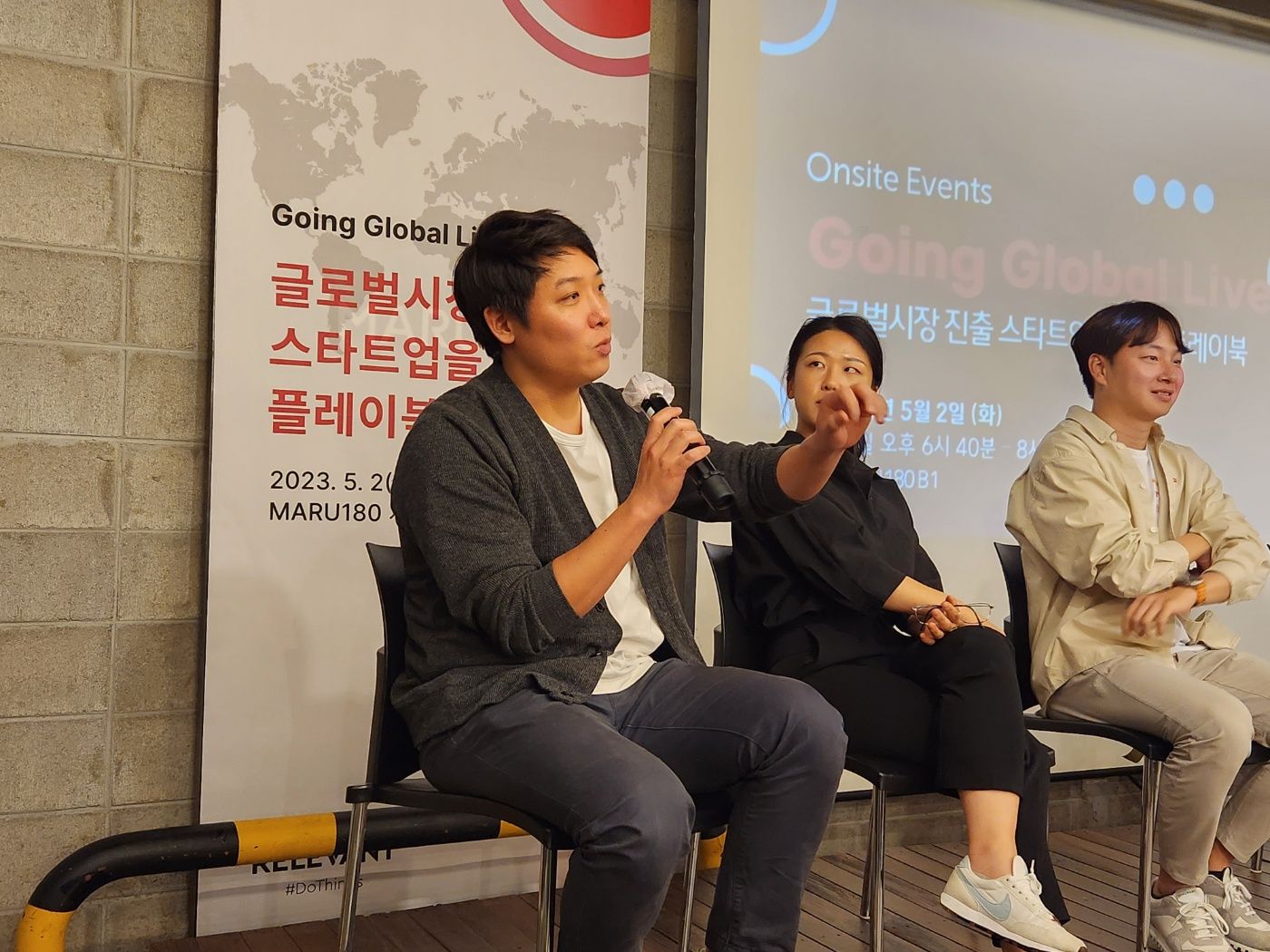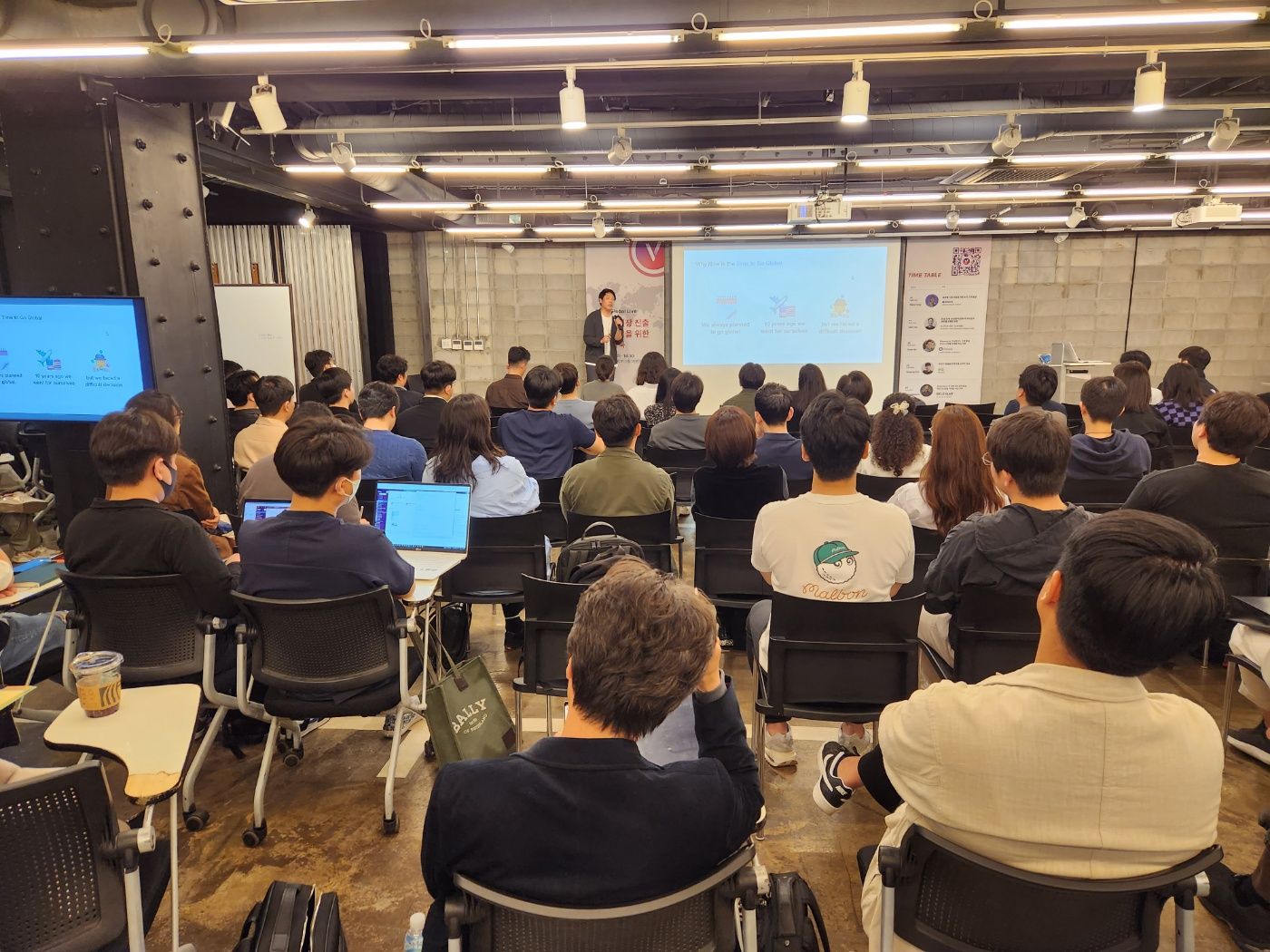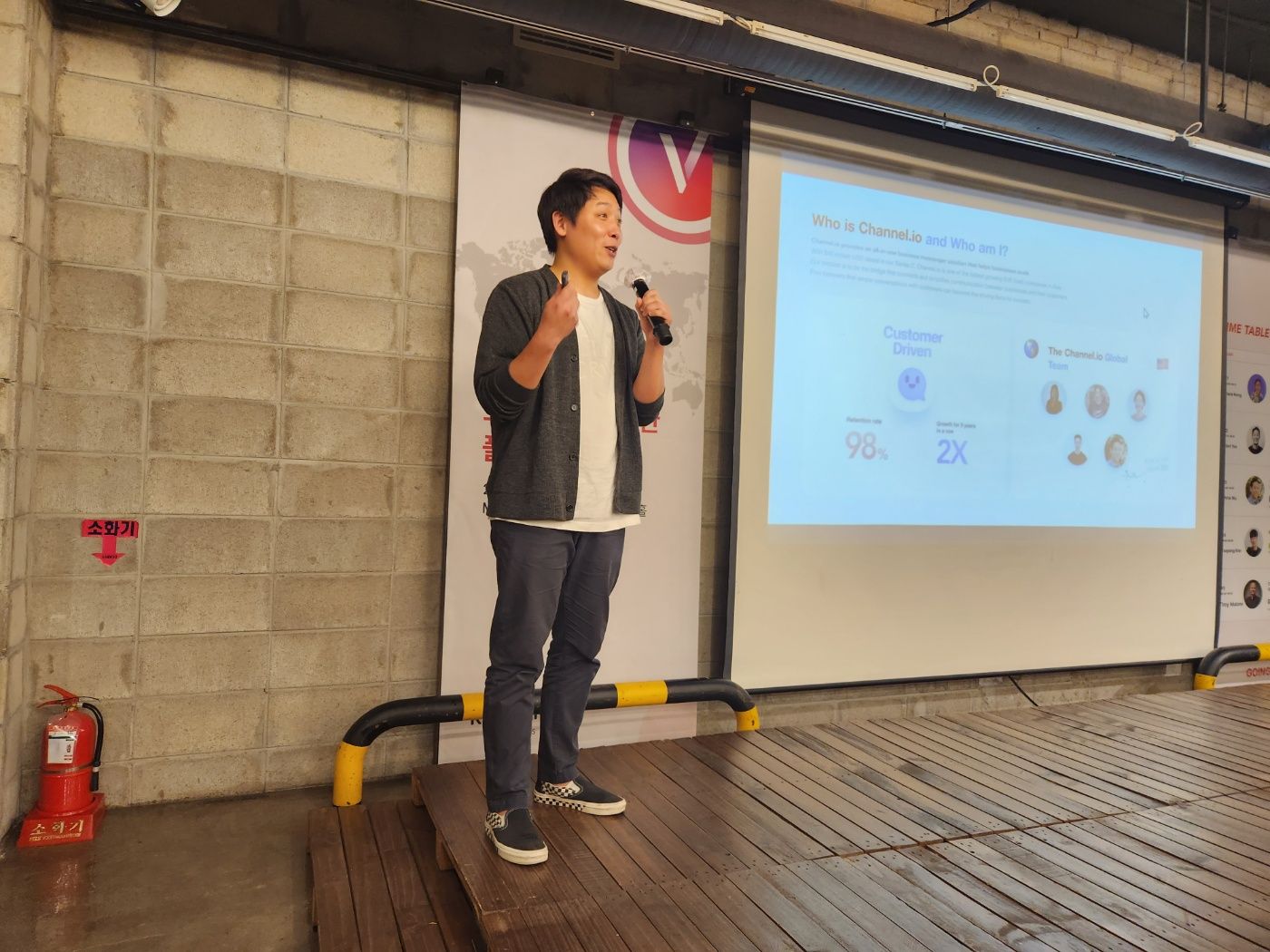Splicing Business and Customer DNA: The Key to Promoting Growth and Change

Speaker : Chris Wu, US Sales Manager at Channel.io
1. Please introduce yourself and your company
Hello, my name is Chris Wu, a US sales representative at Channel.io. If you have not heard of us before, you may have heard of ChannelTalk. Most individuals have seen our cute ghost icon on the bottom right corner of online stores. This icon welcomes you to our chat system for any customer inquiries that helps connect them to businesses. We exist to connect businesses with their customers through better communication.
2. Currently, many companies are putting more effort into surviving in a difficult market rather than focusing on success. What are the necessary steps for a company to survive?
In the current business environment and specifically within customer relations, most companies are having to think of how to survive, rather than how to grow. Anyone in marketing is aware that the returns on ad spend is decreasing while spending is increasing. This trend led many companies to shift their focus from expansion and acquisition to customer retention. Many businesses believe that a strong team and effective products comprise the fundamentals for survival. Despite this common belief, the truth lies in having a strong foundation with regular customers. In the process of developing a product and team, many companies lose track of their relationship with their customers. This lack of attention leads to missing their target audience when creating a product. Our company stands out by incorporating consistent conversations with our customers. In fact, we speak with them every day. Furthermore, employees of all ranks - from new hires to our CEOs - invest time in learning more about our customers. Through this engagement, we continuously redefine who our audience is and their needs.

3. Who is an ideal customer of Channel.io?
All companies deal with a lack of customer satisfaction to some extent. Hypothetically, if one were to ask the average consumer, "How well would you rate your most recent customer experience?" most would not answer positively. On the flip side, if one were to ask the follow-up question to the business that received the negative reaction, "How would you improve your customers' experiences?" the majority would not provide a clear answer because they are not ready or willing to change their current systems. This majority, what we define as the 98%, strives to only maintain the status quo.
Despite the majority’s common thinking, we became aware that there were 2% of customers aligned with Channel.io’s DNA. These customers understood building a lasting customer base and the significance behind customer engagement. So, instead of focusing on the majority, we set our eyes on the 2%. Working with this fraction of customers helped us increase efficiency and customer satisfaction. In fact, some of our solutions went viral through word of mouth rather than having to focus on cold calls.
4. After your success in the Korean and Japanese markets, you are now entering the US and Canadian markets. Can you tell us about this process?
We believe that customer expectations in the Korean and Japanese markets are extremely high compared to that of some other countries. In hindsight, choosing to launch our product in these unforgiving markets was a great choice. It's similar to hiking on a mountain where it's easier to go down than it is to go up. We learned how to build a product that helps customers in the most demanding markets, and we've built a strong DNA - which we can utilize to scale our product to different countries. We built a strong product and a strong team DNA, which enabled us to expand our market.
I didn't realize how poor the customer experience truly was until I left the US. In the vast majority of cases, when a customer wants to contact a business, they are directed to a template email form, and if they contact their bank directly, it's a long and tedious process that may not result in anything. We saw this problem as a golden opportunity to step in and provide value for everyone.

5. Last but not least, what are some key factors that you think companies should keep in mind before expanding globally?
The first key factor is to know your business' DNA. You need to deeply understand why you do what you do and be able to clearly articulate it to yourself and others. If you don't understand your DNA, it will be extremely difficult to succeed in the domestic market, let alone the international market.
The second key factor is to know your customer. If you don't know who you're serving, you will not be able to survive. The only way to find out who your customers are is to go out and talk to them. That's why Channel.io’s products help so many of our global B2B clients. Thank you.
Today’s Speech Insights
1. You can't survive without customers. It is critical that you constantly interact with your customers to understand them so that you can retain and grow your customer base.
2. You need to deeply understand your business DNA to be successful in international markets. Strive to establish a strong, unwavering corporate identity.
3. Once you summit a mountain, the rest is easy. Have the confidence and determination to conquer the most demanding markets first.
